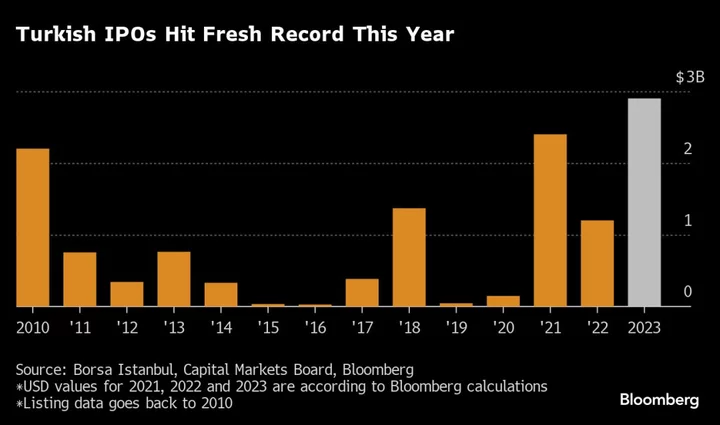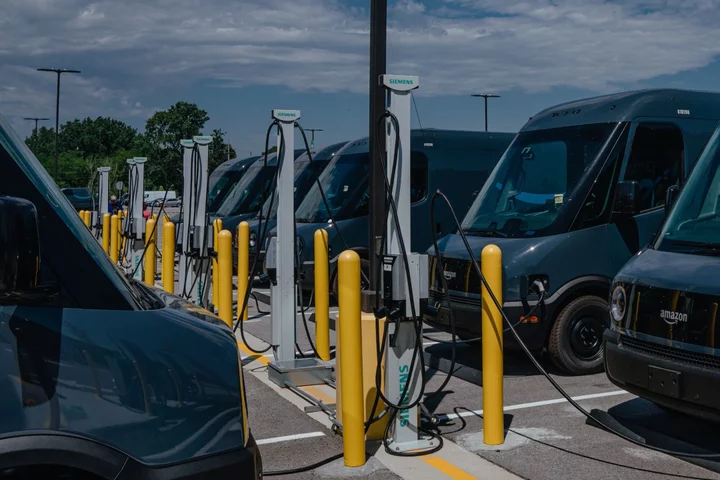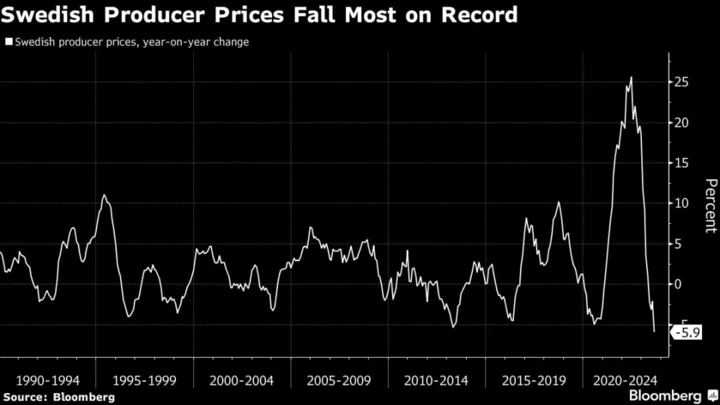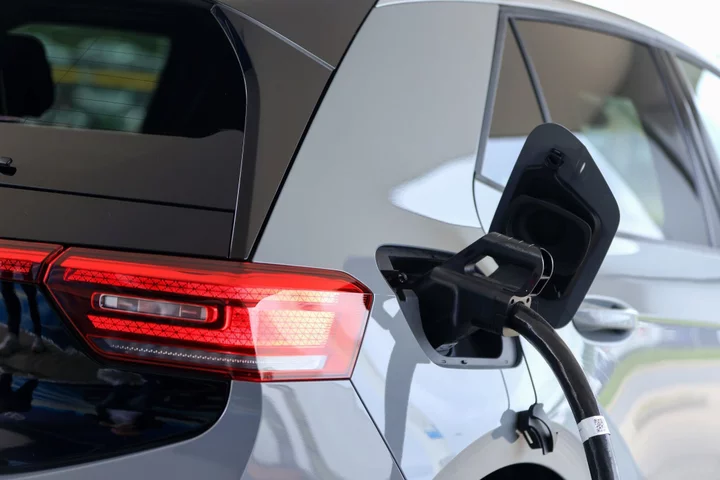China exported small amounts of two minerals crucial to high-tech manufacturing in October, marking a resumption in sales after a two-month hiatus caused by Beijing’s restrictions.
The controls on germanium, gallium and their chemical compounds, used to make parts for chips, telecommunications equipment and electric vehicles, were imposed on Aug. 1 on national security grounds, as China escalated its tit-for-tat trade war with the US and Europe. Another set of export controls on graphite, a key material for EV batteries, is due to come into force on Dec. 1.
For germanium and gallium, Chinese exporters are now required to apply for licenses from the government and report details on their overseas customers and how the metals are used.
After almost zero exports were recorded in August and September, tiny quantities were posted for October, according to the latest Chinese customs data. For germanium, exports were 0.65 tons, compared to 8.78 tons in July. For gallium, they were 0.25 tons, versus 7.58 tons in July.
For the whole of 2022, China exported 44 tons of germanium and 94 tons of gallium.
China is the world’s biggest importer of commodities because its consumption of energy, metals and grains far outstrips its domestic output. But in one corner of raw materials markets — critical minerals used by the world’s high-tech industries — it holds an outsized advantage in terms of production and processing capacity.
Useful Counter
That’s proved to be a useful counter in China’s trade disputes over the years, but it’s also forced dependent economies like the US and its allies to seek new sources of the minerals and “de-risk” their supply chains.
While the strained relationship with Washington has shown some improvement after presidents Xi Jinping and Joe Biden met in San Francisco last week, how that plays out in terms of competition on technology remains uncertain.
The US continues to hinder China’s ability to secure advanced chips for computer processing as well as export its solar panels. The European Union has also launched an anti-subsidy probe into Chinese EVs.
China’s looming graphite curbs aren’t as significant as they could’ve been, according to a note from BloombergNEF, because they “target natural graphite products rather than the synthetic ones that account for the bulk of Chinese exports.” Still, the move could push top importers like South Korea, the US and EU to develop alternative sources, BNEF said.
China’s exports of graphite that will be subject to the controls have averaged about 17,000 tons a month this year, according to customs data. By comparison, exports of synthetic graphite have averaged 47,000 tons.
The Week’s Diary
(All times Beijing unless noted.)
Wednesday, Nov. 22:
- CCTD’s weekly online briefing on Chinese coal, 15:00
- China Petroleum and Chemical Forum in Hangzhou, day 1
Thursday, Nov. 23:
- China Petroleum and Chemical Forum in Hangzhou, day 2
- EARNINGS: Chow Tai Fook
Friday, Nov. 24:
- China Energy Research Society hosts seminar in Beijing on China’s green transition, 09:00
- China weekly iron ore port stockpiles
- Shanghai exchange weekly commodities inventory, ~15:30
- China Petroleum and Chemical Forum in Hangzhou, day 3
On the Wire
The gains in Chinese developers’ bonds and stocks Tuesday are at risk of becoming yet another false dawn as investors seem unconvinced that Beijing’s latest funding plan for 50 real estate firms can help turnaround the embattled property sector.
--With assistance from Ailing Tan and Winnie Zhu.









